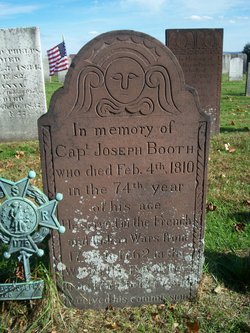Capt. Jonathan Hale at the Siege of Boston
Jonathan Hale was born in Glastonbury, Connecticut, on 1 Feb 1721, the eldest surviving child of Jonathan and Sarah (Talcott) Hale. As Jonathan grew up, his father held many public offices—town clerk, deputy to the Connecticut legislature, justice of the peace, and militia colonel among them.
The younger Jonathan Hale married Elizabeth Welles of Glastonbury in January 1744. Her father was likewise a legislator and militia colonel, so this marriage joined two of the town’s leading families. The groom’s father provided the couple with their own farmland.
Jonathan, Jr., and Elizabeth started having children the following December. Their first three were named, of course, Elizabeth, Jonathan, and Elizabeth—the first baby having died young. By 1770, Elizabeth had given birth to twelve children, eleven of them still alive.
Meanwhile, Jonathan’s younger brother Elizur went to Yale College and came back to Glastonbury to practice medicine. According to the 1885 guide to Yale graduates, “He is said to have been of dignified though rough exterior, witty and sarcastic, but benevolent and very useful.”
In 1772, Jonathan’s father died. He inherited more land and an enslaved man named Newport, and he got to drop the “Junior” after his name. By then he had become an officer in the Connecticut militia himself.
War broke out to the north in 1775. At the end of that year, the enlistments of New Englanders who had joined the army besieging Boston expired. In some desperation, Gen. George Washington asked the nearby colonies to send militia regiments for a few weeks to keep the British army bottled up.
Erastus Wolcott of East Windsor, son of a former governor, was commissioned colonel of one of Connecticut’s militia regiments. Among his captains was Jonathan Hale of Glastonbury—now a fifty-four-year-old grandfather. The regiment appears to have set out in early January 1776. It was assigned to the southern wing of the American forces in Roxbury under Gen. Joseph Spencer.
The Rev. Joseph Perry, a chaplain with those militia forces, wrote in his diary for 27 February:
TOMORROW: March.
The younger Jonathan Hale married Elizabeth Welles of Glastonbury in January 1744. Her father was likewise a legislator and militia colonel, so this marriage joined two of the town’s leading families. The groom’s father provided the couple with their own farmland.
Jonathan, Jr., and Elizabeth started having children the following December. Their first three were named, of course, Elizabeth, Jonathan, and Elizabeth—the first baby having died young. By 1770, Elizabeth had given birth to twelve children, eleven of them still alive.
Meanwhile, Jonathan’s younger brother Elizur went to Yale College and came back to Glastonbury to practice medicine. According to the 1885 guide to Yale graduates, “He is said to have been of dignified though rough exterior, witty and sarcastic, but benevolent and very useful.”
In 1772, Jonathan’s father died. He inherited more land and an enslaved man named Newport, and he got to drop the “Junior” after his name. By then he had become an officer in the Connecticut militia himself.
War broke out to the north in 1775. At the end of that year, the enlistments of New Englanders who had joined the army besieging Boston expired. In some desperation, Gen. George Washington asked the nearby colonies to send militia regiments for a few weeks to keep the British army bottled up.
Erastus Wolcott of East Windsor, son of a former governor, was commissioned colonel of one of Connecticut’s militia regiments. Among his captains was Jonathan Hale of Glastonbury—now a fifty-four-year-old grandfather. The regiment appears to have set out in early January 1776. It was assigned to the southern wing of the American forces in Roxbury under Gen. Joseph Spencer.
The Rev. Joseph Perry, a chaplain with those militia forces, wrote in his diary for 27 February:
About one P.M. when almost ready to dine came an alarm by General Spencers’ Sergeant brought it. The account was that the Regulars had landed on Dorchester point. Coll. Wolcott was ordered forth with to turn out with his Regiment. The Coll. sent the alarm to his Captins in every quarter to parade before his house immediately for an attack. . . .Continental commanders were preparing to move onto the Dorchester heights and antsy about anything disrupting that plan. Washington wrote to Gen. Artemas Ward suggesting that he put “Six or Eight trusty men by way of Lookouts or Patrols” on that peninsula, “For should the Enemy get Possession of those Hills before us they would render it a difficult task to dispossess them.”
Every face looked serious but determined and the thing was real to us. In a few moments the whole Regiment would have been moving to the expected scene of blood, but were countermanded by order from Genrl Spencer informing it was a false alarm. The men got out of the rain and mud as fast as they could and all was peace again.
TOMORROW: March.


